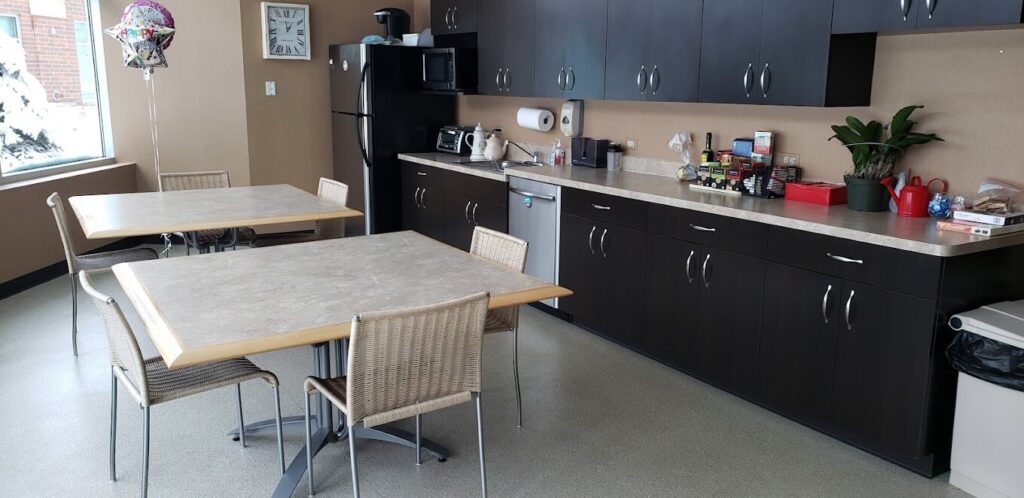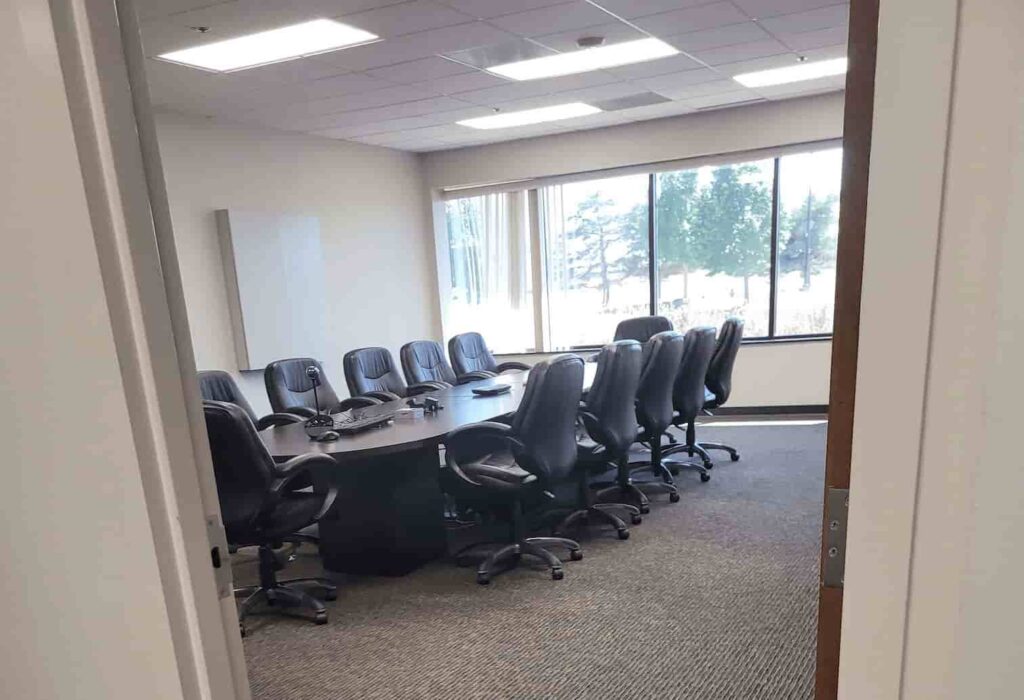A clean and organized office isn’t just about appearance—it’s about creating an environment where productivity can thrive. A tidy workspace has a direct impact on employees’ health, focus, and overall performance. In today’s fast-paced corporate world, keeping the office clean is essential not just for aesthetics but for employee well-being and productivity.
From sanitizing shared areas to the difference between daily cleaning and deep cleaning, effective office cleaning practices play a significant role in maintaining a productive and healthy workspace.
In this article, we’ll dive into the importance of keeping workspaces clean, sanitizing key areas, and how maintaining a clean office boosts productivity. We’ll also touch on the role of professional janitorial services and the best practices for achieving a spotless, efficient work environment.
The Importance of Keeping Workspaces Clean
1. First Impressions Matter
When clients or partners walk into your office, the cleanliness of the space is one of the first things they notice. An organized and spotless office speaks volumes about your company’s professionalism and attention to detail.
- A Reflection of Brand Values: A clean workspace sends a clear message about your company’s standards. It reflects your commitment to professionalism and provides a welcoming environment for clients and employees alike.
2. Health and Safety Concerns
Unclean workspaces are breeding grounds for germs, bacteria, and allergens. These can easily spread in an office setting, especially in shared spaces like conference rooms, kitchens, and restrooms.
- Illness Prevention: A regularly cleaned office reduces the spread of illnesses like colds and flu, which can result in fewer sick days for employees. With fewer sick days, you can expect higher productivity and less disruption to daily operations.
3. Employee Satisfaction
The cleanliness of an office has a significant effect on employee morale. Workers are more likely to feel comfortable and take pride in their workspace if it is clean and well-maintained.
- Boosting Job Satisfaction: A clutter-free and hygienic environment can make employees feel valued and respected. No one wants to work in a messy, dusty space, so providing a clean environment improves their overall job satisfaction.
Sanitizing Shared Areas (Conference Rooms, Kitchens, and More)
1. Conference Rooms: High-Traffic Spaces
Conference rooms are one of the most heavily used areas in any office. They’re where important meetings, presentations, and brainstorming sessions happen, which means they are also a hub for germs.
- Regular Wipe-Downs: Surfaces like tables, chairs, and remote controls should be disinfected daily, as these are touched frequently by different individuals. Keeping the space sanitized ensures that the risk of spreading germs is minimized.
- Air Quality: It’s also important to pay attention to the air quality in these enclosed spaces. Ensure proper ventilation and clean air conditioning vents regularly to avoid dust buildup.
2. Kitchens: The Germ Magnet
Office kitchens, where employees prepare meals and drinks, can become hotspots for bacteria. Regular cleaning of this area is essential to maintaining hygiene and preventing cross-contamination.

- Daily Cleaning: Kitchen countertops, sinks, and appliances should be cleaned daily to prevent the buildup of bacteria and food residue. Make sure that shared items like coffee machines and microwaves are sanitized frequently.
- Refrigerators and Pantries: Office refrigerators and pantries should be cleaned weekly to remove expired items and prevent bad odors. Organizing these areas can also reduce clutter and improve overall cleanliness.
3. Restrooms: Non-Negotiable Cleanliness
Restrooms in corporate offices are a high-use area that require strict cleaning protocols to ensure hygiene and employee comfort.
- Daily Cleaning: Ensure restrooms are cleaned and disinfected daily, with special attention to toilets, sinks, and floors. High-touch areas like faucet handles and doorknobs should be sanitized frequently throughout the day.
- Stock Supplies: Restrooms should always be stocked with essential supplies like toilet paper, hand soap, and paper towels. Empty supplies not only inconvenience employees but also create a negative impression of the workplace.
How Cleanliness Impacts Employee Productivity
1. Reduced Distractions
Cluttered or messy work environments can distract employees, preventing them from focusing on tasks. A disorganized space can also make it harder to locate important documents or tools, wasting valuable time.
- Clear Mind, Clear Space: A well-organized office encourages a clear and focused mindset. When desks are clean, and everything is in its place, employees can concentrate better on their work and experience less stress.
2. Fewer Sick Days
As mentioned earlier, keeping the office clean helps reduce the spread of germs, leading to fewer employee illnesses. Less sick leave means employees are present and working at full capacity more consistently.
- A Healthier Environment: Offices that maintain a regular cleaning schedule see fewer instances of sick employees. This creates a healthier overall environment, which in turn boosts productivity levels.
3. Improved Air Quality
Indoor air quality can greatly impact employee health and comfort. Dust, allergens, and airborne contaminants can accumulate in poorly ventilated offices, leading to issues like headaches, respiratory problems, and general discomfort.
- Air Filtration Systems: Regular cleaning, especially dusting and vacuuming with HEPA filters, can improve air quality. Maintaining HVAC systems and ensuring proper ventilation also contributes to a healthier workspace.
Regular Cleaning vs. Deep Cleaning
1. The Role of Regular Cleaning
Regular cleaning forms the backbone of any corporate cleaning strategy. This involves routine tasks like wiping surfaces, vacuuming floors, emptying trash bins, and sanitizing restrooms. Regular cleaning keeps the office neat and free from daily clutter.
- Daily Maintenance: By cleaning high-traffic areas and shared spaces every day, you maintain basic hygiene standards and prevent dirt and grime from accumulating.
- Employee Responsibility: Encouraging employees to maintain their own workstations by cleaning up after themselves also supports a tidy office environment. Simple habits like throwing away trash, wiping desks, and keeping shared spaces tidy can make a big difference.
2. The Need for Deep Cleaning
Deep cleaning goes beyond the surface to tackle areas that regular cleaning might miss. This includes cleaning carpets, upholstery, blinds, and air ducts, as well as scrubbing floors and disinfecting hard-to-reach areas.
- How Often?: Offices should schedule deep cleaning sessions every few months, depending on the level of foot traffic and activities in the space. Some offices may require quarterly deep cleans, while others may only need them twice a year.
- Why It’s Important: Deep cleaning removes deeply embedded dirt, allergens, and contaminants that daily cleaning can’t handle. It ensures that every corner of the office is sanitized, which contributes to better air quality and a healthier workspace overall.
The Benefits of Hiring Professional Janitorial Services
1. Expertise and Efficiency
Hiring professional janitorial services ensures that your office is cleaned to the highest standards. Professional cleaners are trained to handle the specific needs of corporate spaces, from using the right cleaning products to tackling hard-to-clean areas.
- Tailored Cleaning Plans: Professional services offer customized cleaning plans based on your office’s unique needs. Whether you need daily cleaning, deep cleaning, or specialized services, they can provide the expertise required to keep your office spotless.
2. Cost-Effectiveness
While hiring professional cleaners might seem like an added expense, it’s a worthwhile investment in the long run. A clean office can prevent bigger problems like damaged carpets or furniture that may need costly repairs or replacement.
- Productivity Gains: As previously discussed, a clean and organized office boosts employee productivity. Fewer sick days and improved focus can have a significant impact on your bottom line.
3. Consistent Results
One of the biggest advantages of professional cleaning services is the consistency they offer. With a reliable cleaning schedule, you can trust that your office will always be maintained to the highest standards.
- Focus on What Matters: Let the professionals handle the cleaning, so your employees can focus on what they do best—growing the business and staying productive.
Conclusion
A clean office is more than just a luxury; it’s a necessity for creating a productive, healthy, and professional work environment. From maintaining shared spaces like conference rooms and kitchens to ensuring that restrooms are spotless, keeping the office clean has a direct impact on employee well-being and productivity.
By balancing regular cleaning with periodic deep cleans and considering the benefits of hiring professional janitorial services, businesses can maintain a work environment where employees can thrive.
A spotless, organized workspace helps create a positive company culture, fosters creativity, and reduces the spread of illnesses—all while leaving a great impression on clients and visitors.
If you want your business to run smoothly and efficiently, investing in proper office cleaning practices is a must.
FAQs
-
How often should offices schedule deep cleaning?
Most offices benefit from deep cleaning every three to six months, depending on the size and foot traffic. High-traffic areas may need more frequent attention.
-
What are the best practices for sanitizing shared office spaces?
Focus on high-touch surfaces like door handles, keyboards, and countertops. These should be cleaned and disinfected daily to reduce the spread of germs.
-
Does office cleanliness really impact productivity?
Absolutely! A clean office reduces distractions, improves air quality, and creates a healthier environment, all of which contribute to increased focus and fewer sick days.
-
Are eco-friendly cleaning products effective for office cleaning?
Yes, eco-friendly cleaning products are just as effective as traditional cleaners. They also improve indoor air quality and reduce the risk of allergic reactions among employees.
-
Can professional janitorial services handle specialized cleaning needs?
Yes, most professional cleaning companies offer tailored services that can address specialized needs such as carpet cleaning, window washing, and deep sanitization.

